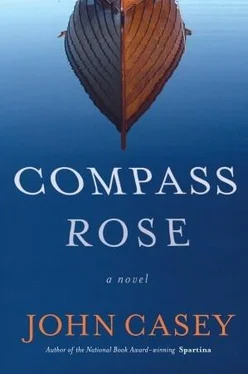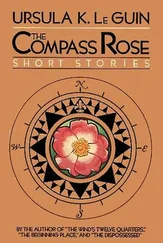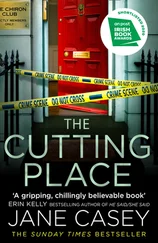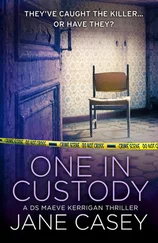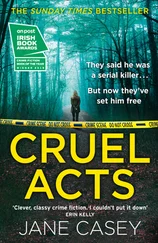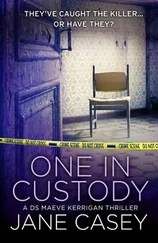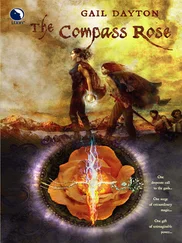It was only luck, a little puff of memory that brought back the favorite-daughter joke. Brought back from where? There might be no end of moments that weren’t in the calendar of Christmases, birthdays, school years — that hadn’t snagged on another memory but sifted into the time that was beyond the gravity of her memory. Time flowed into everyone and then out again, more of it unremembered than remembered. She thought of time growing fainter and fainter as it lost what gave it life — what people heard or saw or touched or smelled or tasted — and then going back to being nothing.
Elsie was laughing again. “In the middle of it — not the middle middle but the middle of the beginning — I suddenly got mad. Have you ever …? When you were a little bit angry? It reminds me of how you put lemon juice on figs or that fancy Italian vinegar on strawberries and they taste sweeter. Is that like homeopathy? You put in a little bad thing to make the whole thing better?”
“No,” Mary said. “Not homeopathy. I don’t know about homeopathy. The acid breaks down the fibers, and the fruit gets juicier.”
Elsie laughed.
Mary made an even bigger effort but only got as far as saying again, “So you and Johnny hit it off.”
Elsie turned so her back was against the arm of the sofa, tucked her knees to her chest, and took a swig of beer. “What was nice in another way, in a completely other way, was that afterward we both burst out laughing. We must have thought the same thing — here we are, like a couple of teenagers. The windows steamed up, clothes all tangled. A couple of teenagers.”
“Like Sylvia Teixeira …”
Elsie looked up. “Oh, God, Sylvia. Was she okay about staying late? I told her nine o’clock. Have you been back awhile?”
Mary pressed her lips together and took a second. Mary said, “She was fine. I got back early. Rose was asleep. Sylvia walked down to Miss Perry’s. Everything’s fine.” Elsie closed her eyes and rested her head on her knees.
Mary said, “When do babies start remembering? I mean, remember for life. When Rose is four she won’t remember what’s going on now, but she’ll remember from then on, right? I’m picking four because that’s when I remember stuff from, it might have been three, but maybe it could happen even earlier with Rose — she’s smart for a baby.”
Elsie lifted her head and looked hard at Mary. Mary heard the tone of what she’d just said as if it was on a tape recorder — her voice higher than normal and breathlessly needy. If she was tending bar she wouldn’t give that woman another drink. Mary said, “Never mind all that.” She sounded like her father, though he never used the phrase to cancel anything he himself said, just to get everyone else to pipe down.
Maybe it was that bit of wry remembering, maybe it was that Elsie finally concentrated on her, or maybe it was that Elsie said, “Oh, Rose knows who we are.” There. Elsie said “we.” Mary resurfaced into the present. Elsie said, “She’s like a baby duck or a goose; we’re imprinted on her. You can read Konrad Lorenz about that. His geese hatched and he was the first thing they saw, so they followed him around as if he were their mother.”
Trust Elsie to give a nature lecture. But Elsie’s effort met her halfway, as good an effort as Mary herself had made, good enough to call it a night.
She and Elsie were in orbit around Rose. The two of them might be aligned or opposed, they might spin their days and nights at different intervals, but round and round they’d go … Until when? Until Rose grew up? Never mind time. Time wasn’t the only thing that mattered. Rose would be in their memory, and they would be in Rose’s. Elsie had said “we”; she’d said, “Rose knows who we are.” Never mind the geese. Never mind Elsie’s night out. The three of them would move together, making a force field of shared memory that would catch more of time than if each of them was alone.
This vision held for a moment, then slid away. Mary felt she’d performed a mental act that obtained grace as surely as she’d once believed in grace through prayer. She felt the ghost of all those novenas and rosaries and composition-of-place meditations (“Feel the crown of thorns on our Savior’s brow; feel the weight of the Cross”). And if it was all that that brought her to the same near swoon she used to feel when she’d been lifted up from her aching knees and clasped hands, and the smell of her wet wool scarf — if that piety came back to her in the here and now of how she loved Rose — what of it?
It was hers — she remembered what she remembered without worrying about blasphemy or sacrilege. And all the other old tunes of her life, when Rose grew old enough to sing them, would snag the new parts of their life, keep them on earth, keep them from flying unremembered into space.
Elsie had nodded off. Mary woke her up enough so that she could sleepwalk to bed. Mary reached under the quilt and pulled Elsie’s boots off, left her in her wool dress. It looked comfortable enough. She turned Elsie’s alarm on, checked the woodstove, and went up to her room, looking forward to breakfast, to Rose, to the day when she and Rose would be sitting at the table by the window having a long breakfast together.
Miss Perry’s recovery from her stroke had been, according to the doctor, remarkable for someone her age. He had given her passing marks in motor and language skills. Elsie thought the recovery was remarkable in a different way. It wasn’t that Miss Perry wasn’t Miss Perry, but that — as Elsie struggled to describe it to the doctor — the colors of her moods were more intense. The doctor nodded and then said, “You’ve been a great comfort to her,” and Elsie understood that they weren’t going to have a discussion, certainly not one that might become metaphysical.
Sylvia Teixeira, although now a student at the University of Rhode Island, still came in the morning and again at suppertime. It was Mary Scanlon who told Elsie that that’s how Sylvia put off having to go to Portugal for a year. Elsie dropped in on Miss Perry after work before going to pick Rose up at Sawtooth and, later, day care.
When Rose started going to kindergarten, Elsie said to Miss Perry, “My daughter isn’t a baby anymore.”
Miss Perry understood at once. She said, “You may bring the child with you, and we shall see. Do you remember what ages Charlie and Tom were when I found them agreeable companions?”
Elsie said she didn’t.
“I do remember they knew how to s-swim,” Miss Perry said. She stuttered slightly on some sibilants. “The first time we all went out in Dick Pierce’s skiff, I asked, perhaps overcautiously, if the little boys knew how to swim. Dick no more than nodded, and without a word they took off their shirts, jumped in, and dog-paddled to the far bank and back. Dick held out a length of rope, they both took hold, and Dick swung them up over the gunwales. He held them in the air for a moment, their little brown legs dangling, both of them grinning. Dick smiled one of his shy, proud smiles, and I was quite enchanted. It wasn’t simply the display of s-strength, though the boys together may well have made up a hundredweight, but rather the sensation of being the single audience for their larking about. A fortunate consequence was that the boys were released from feeling that I was an inhibiting presence.” Miss Perry paused. Elsie thought she might have lost her train of thought, but Miss Perry was simply composing her next sentence. “When I fear from time to time that I have not done enough with my years, I find that my consolation is not so much in the active parts of my life — although teaching, particularly teaching you, certainly required a good deal of activity — but rather in moments like that in Dick’s skiff, when affection and pleasure simply rose up around us. You have a more vigorous nature than I ever had, and on the whole I admire it, but I hope that after a few more hectic years, when your daughter is grown and I am dead, you will let yourself become a more reflective tutelary spirit. One of the things that contributed to the flowering of New England was that the powerful families almost all had a poor cousin, either actual or figurative, who acted as their conscience. You have devoted a good deal of your energy to defending the natural world. But there is s-something else for which I can’t find a name. I can say only that Captain Teixeira, Everett Hazard, and Dick Pierce are more essential to South County than Jack Aldrich. I am fond of Jack, but he has skewed ordinary life by isolating his part of the community in private luxury. It is disconcerting that someone I don’t much care for, I mean Phoebe Fitzgerald, has taken a wider interest in everyday life than Jack has. When I am in a disparaging mood, I see her as a schoolgirl trying desperately to be popular. When I am in a more sympathetic mood, I grudgingly admire her darting about as the self-appointed town crier.” Miss Perry opened her eyes wide, as if staring at what she’d said. “Oh, I see I’m lingering in the disparaging mood. Let us pass on. What I am attempting to say to you is that you can be a better form of what I have tried to be. If I had to say in a single phrase what my life has been, it is this — a love affair with this small piece of rock-strewn woods and ponds, and the people who truly live in it. It has been perhaps too passive a love but keenly felt. The general confession in the Book of Common Prayer will have to stand for the rest. ‘We have left undone those things which we ought to have done; and we have done those things which we ought not to have done.’ I have been s-snobbish about Phoebe Fitzgerald, mean-spirited about Eddie Wormsley, too timid and reclusive to accept Captain Teixeira’s invitations to his family parties. And, of course, I have taken your affection for granted.” Miss Perry sat back in her armchair, rested her head on the antimacassar, and closed her eyes. Miss Perry’s rehearsed speeches made Elsie rigid with the effort it cost them both. She hoped Miss Perry hadn’t fallen asleep. She didn’t like waking her up, but she couldn’t leave her asleep in a chair until Sylvia Teixeira came.
Читать дальше
